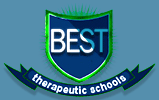About Dsythymic Disorder
Dsythymic Disorder is mild form of chronic clinical depression. Though the symptoms are Dysthymic Disorder are typically fewer and milder than those of Major Depressive Disorder, they also typically last longer. Most people with dysthymia also suffer from a serious physical ailment or other psychiatric disorder such as anxiety disorder. They may also deal with issues relating to drug or alcohol addiction. Symptoms are consistent with other forms of depression, and may include difficulty concentrating, feelings of hopelessness, insomnia, eating disorders, fatigue, low self-esteem, and lack of energy. One of the distinguishing marks of dysthymia is that the symptoms being experienced have manifested for a period of two years or more prior to diagnosis, without symptoms of more serious depression or a chemical or medical causation. This length of symptom experience is lowered to one year for teenage patients.
When Dsythymic Disorder in teenagers, treatment will typically include some form of therapy to provide effective coping strategies. Many people with dsythymia respond well to an order life guided by routines to prevent the worsening of symptoms. Many standard anti-depressant medications are not approved for use in teenagers under the age of 18, as some have the side effect of increasing suicidal thoughts and actions. If medication is prescribed for teens, usage and response must be very carefully monitored.
The effect of Dsythymic Disorder in teens on their families is similar to that of other depressive disorders. The symptoms can be missed or misinterpreted as normal teenage angst. But if left untreated, dsythymia can progress into more a serious form of depression, with a more negative impact. Parents will likely need to be involved in the choice to seek treatment for their teen, as well as monitoring the reaction to that treatment.
We’ll help you find a therapeutic boarding school for your child with Dsythymic Disorder
We talk to dozens of parents daily, matching them up with therapeutic boarding schools that can best help their teenager. We visit these schools and we know the people there. And we get regular reports from parents who have placed their teenager there. So we are in a unique position to help you in this important decision. There is NO CHARGE for this service. Just fill in the inquiry form and I’ll provide the best possible options for your child.
[HTML1]

